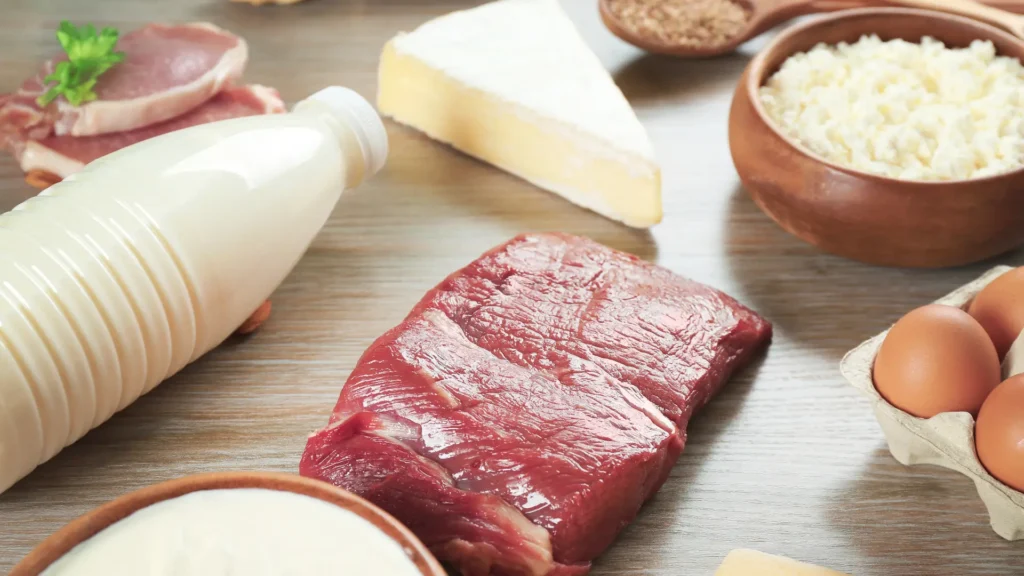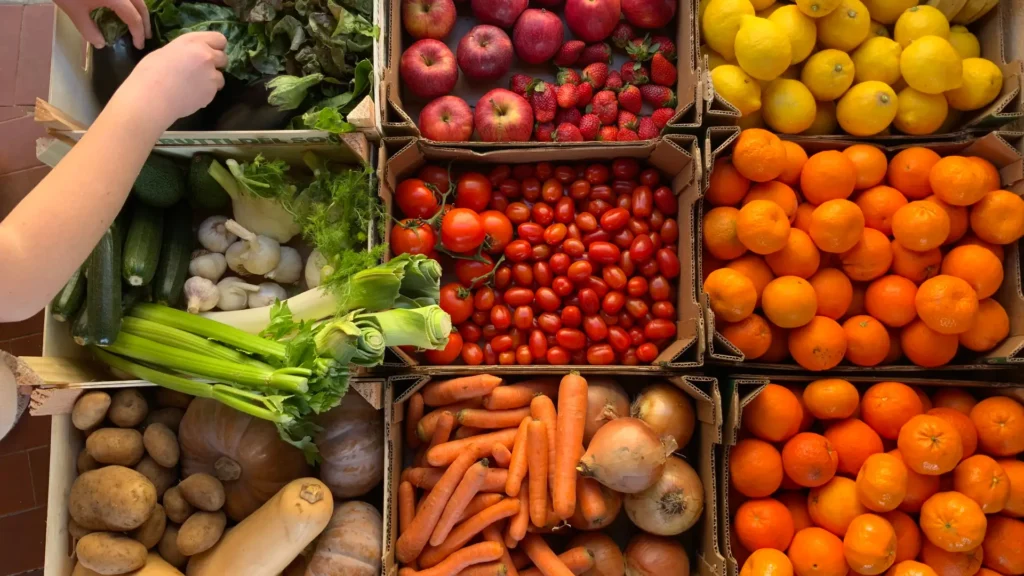Are you expecting a baby? It’s essential to understand the importance of your dietary choices at this exciting time in your life. A healthy pregnancy diet offers extensive benefits, not only for you but also for your little one growing inside you. Proper nutrition during pregnancy sets the foundation for your baby’s health and can significantly affect their growth and development.
Why is a Healthy Pregnancy Diet Important?
Consuming a well-balanced diet provides you with the energy needed to handle pregnancy changes, cope with fatigue, and prepare for the demands of labor. Pregnant women who follow a healthy diet are less likely to experience complications such as gestational diabetes or hypertension.
For your baby, adequate nutrition can result in proper fetal growth and development. From the rapid cell growth of the early weeks to the development of complex body systems later on, every stage of fetal growth relies heavily on nutrients obtained from your diet.
The fascinating journey of fetal growth and development starts from a single cell and progresses to a fully formed human being in just nine months. During this period, everything that you consume plays a role in shaping this journey. Your baby’s organs, bones, tissues—all developing rapidly—need specific nutrients at different points in time.
In essence, what you eat now has an impact far beyond these nine months. Your pregnancy diet could influence your child’s health in late adulthood. So let’s dive deep into understanding what constitutes an effective pregnancy diet.
Essential Nutrients for a Healthy Pregnancy Diet

Macronutrients in Pregnancy Diet
When it comes to a pregnancy diet, understanding and integrating the right balance of macronutrients — namely proteins, carbohydrates, and fats — is crucial for the health of both mother and child. Here’s how these components play a pivotal role:
Proteins
These are the building blocks of life, vital for the growth of fetal tissue, including the brain. They also contribute to the expansion of uterine and breast tissue and are instrumental in increasing blood supply. Examples of protein-rich foods include:
- Lean meats
- Eggs
- Beans and lentils
- Tofu
- Nuts and seeds
Dairy Foods
Beyond being excellent protein sources, dairy products offer calcium, which is indispensable for developing your baby’s bones and teeth. Yogurt, milk, and cheese are dairy-based leaders in providing high-quality calcium.
Fats
Healthy fats are not only a dense source of energy but also help with the absorption of certain vitamins. They’re necessary for brain development and the formation of your baby’s eyes. It’s essential to distinguish between:
- Saturated fats: Found in butter, lard, and fatty cuts of meat; these should be limited.
- Unsaturated fats: Healthier options like olive oil, avocados, nuts, and seeds; these should be included judiciously.
Micronutrients in Pregnancy Diet
While macronutrients provide the bulk of dietary energy, micronutrients — including vitamins and minerals — are just as crucial during pregnancy due to their role in development and prevention of birth defects. Comprising vitamins and minerals, micronutrients are vital to ensure a healthy pregnancy and optimal fetal development.
Folic Acid
Let’s start with folic acid. This B vitamin is famous for reducing the risk of neural tube defects such as spina bifida. Leafy green vegetables, nuts, beans, and citrus fruits are good sources. It’s a must-have from the moment you even begin considering pregnancy. A B-vitamin, folic acid aids in preventing neural tube defects, serious abnormalities of the brain and spine. However, due to its immense importance, a daily supplement of 400-800 mcg is often recommended.
Iron
Integral for making hemoglobin in red blood cells which carry oxygen to tissues; iron-rich foods include red meat, poultry, seafood, and iron-fortified cereals. They help to create the extra blood (hemoglobin) needed to supply oxygen to your baby. Iron-deficiency anemia during pregnancy is not uncommon and can lead to premature birth or low birth weight. Examples of iron-rich foods include lean meat, poultry, fish, lentils, spinach and iron-fortified cereals.
Fun Fact: Pairing iron-rich foods with sources of vitamin C (such as citrus fruits) can enhance iron absorption.
Vitamin D
Next, we have Vitamin D. It works with calcium to help baby’s bones and teeth develop properly. Safe sun exposure and foods like fortified milk or fatty fish can provide vitamin D. While sunlight can help your body produce vitamin D, food sources like fatty fish, beef liver, cheese, and egg yolks are also rich in this vital nutrient. Supplements might be needed if you’re deficient or at risk of deficiency.
The Connection Between Calcium and Vitamin D
Calcium goes hand-in-hand with Vitamin D in keeping those tiny bones strong and healthy. Dairy products like milk, cheese and yogurt are rich sources of calcium. Other options include broccoli, kale and figs.
But where do we get these micronutrients?
Good question! Here’s a handy list:
- Folic Acid: Dark green leafy vegetables, fortified cereals
- Vitamin D: Fatty fish (like salmon), cheese, egg yolks
- Iron: Lean meat, lentils, iron-fortified cereals
- Calcium: Dairy products, leafy greens
So why is this micronutrient information so vital?
Well, a balanced pregnancy diet isn’t just about the macronutrients. It’s also about ensuring you’re getting a diverse range of micronutrients for both your health and your baby’s development. From brain development to bone strength, these tiny nutrients play big roles in the grand scheme of things.
Building an effective pregnancy diet is akin to assembling a complex jigsaw puzzle – every piece counts. So while we load our plates with protein-rich foods and healthy fats, let’s not forget about these mighty micronutrients.
Keep in mind that while food sources are best, supplements may be necessary if you’re not getting enough from diet alone. Always consult your healthcare provider before starting any new supplement regimen to avoid overconsumption.
Food Sources Rich in Essential Vitamins and Minerals
Here are some examples of nutrient-dense foods rich in essential vitamins and minerals:
- Folic Acid: Spinach, broccoli, peanuts
- Calcium: Dairy products, fortified plant milks
- Iron: Beef steak, cooked spinach
- Vitamin D: Salmon, fortified breakfast cereals
A pregnancy diet rich in both macro- and micronutrients lays down the foundation for optimal fetal development while supporting maternal health. Ensuring that you consume an assortment of nutrient-dense foods will cater to both sets of requirements efficiently.
Pregnancy Diet: Foods to Avoid

Navigating the world of nutrition during pregnancy can sometimes feel like a minefield, especially with the need to avoid certain foods that could harm you or your baby. Thus, understanding what to steer clear of is just as crucial as knowing what to consume.
Listeriosis and Pregnancy
Listeriosis is an infection caused by Listeria monocytogenes, a bacterium found in soil, water, and some animals. This infection is particularly concerning for expectant mothers because it can lead to severe complications such as miscarriage, stillbirth, or life-threatening infections in newborns.
Preventing Listeriosis:
- Consume Pasteurized Products: Always choose pasteurized dairy products to reduce the risk of exposure.
- Handle Produce Carefully: Wash fruits and vegetables thoroughly under running water before eating.
- Avoid High-Risk Foods: Stay away from soft cheeses like brie and feta unless they are labeled as made with pasteurized milk, as well as deli meats and hot dogs unless they are heated until steaming hot.
- Practice Good Hygiene: Wash hands, knives, countertops, and cutting boards after handling uncooked foods.
Caffeine Intake During Pregnancy
Caffeine is a stimulant found in coffee, tea, cola drinks, chocolate, and some over-the-counter medications. While moderate caffeine consumption isn’t generally harmful, during pregnancy it’s wise to limit intake.
Recommended Caffeine Limits:
- Aim for less than 200 milligrams per day – roughly the amount found in one 12-ounce cup of coffee.
Miscarriage Risks Linked to Diet
Certain foods have been associated with an increased risk of miscarriage. To minimize this risk:
- Avoid unpasteurized milk and products made from it.
- Skip the raw or undercooked eggs and food items containing them like homemade mayonnaise or certain sauces.
- Choose cooked rather than raw seafood.
Other Food-Related Concerns in Pregnancy Diet
Reading Food Labels
Understanding food labels can be the key to ensuring pregnancy food safety. Labels provide information on ingredients, additives, allergens, and more.
Label Literacy Tips:
- Check for Allergens: Food labels must clearly list common allergens, which could also indicate cross-contamination risks.
- Inspect Expiry Dates: Always check ‘use by’ and ‘best before’ dates to ensure freshness.
- Understand Nutrition Information: Pay attention to serving sizes and nutrient content per serving.
Preventing Toxoplasmosis Through Diet
Toxoplasmosis is an infection caused by Toxoplasma gondii. It’s often contracted through food that carries the parasite.
Toxoplasmosis Prevention Strategies:
- Cook Meat Thoroughly: Ensure that all meat is cooked to safe internal temperatures.
- Avoid Contaminated Produce: Wash all fruits and vegetables thoroughly.
- Steer Clear of Unwashed Vegetables: Be cautious with salads made outside your home that may contain unwashed produce.
Pro Tip: Utilize a meat thermometer when cooking at home to guarantee that meats reach safe temperatures—such as 160°F for ground meats and 165°F for poultry.
Building a Balanced and Nutritious Pregnancy Diet

A diet filled with different fruits and vegetables isn’t just a colorful plate, but an important part of prenatal health. These foods are packed with vitamins, minerals, and fibers that are good for both the baby and the mother.
The Importance of Fruits, Vegetables, and Fiber
Eating a variety of fruits and vegetables ensures that you get different nutrients. Here are some examples:
- Oranges have vitamin C, which helps the immune system.
- Spinach is high in iron, which prevents anemia.
- Berries contain antioxidants that protect cells.
And don’t forget about fiber! It’s found in many plant-based foods and helps with digestion and preventing constipation—a common problem during pregnancy.
Understanding a Balanced Diet During Pregnancy
A balanced diet during pregnancy means more than just eating the right things. It’s about finding the right balance between different food groups to support both you and your growing baby. Here are some important components:
- Carbohydrates: Choose whole grains like brown rice or quinoa for lasting energy.
- Proteins: Include lean meats, beans, and tofu for fetal tissue development.
- Fats: Go for healthy fats such as avocados and nuts for brain development.
Tips for Choosing Healthy Foods
Making healthy food choices can be easier with these tips:
- Plan Meals Ahead: Make a weekly menu to make sure you eat a variety of foods.
- Cook at Home: This gives you control over what goes into your meals.
- Smart Snacking: Pick snacks that are rich in nutrients like yogurt or apple slices with peanut butter.
- Hydrate Wisely: Drink water or herbal teas instead of sugary drinks.
Recommendations for Portion Sizes and Food Groups in Pregnancy Diet Plan
Knowing how much to eat is important for maintaining a healthy pregnancy weight. Here’s a guide on how to divide your plate:
- Half should be fruits and vegetables—try to have different colors.
- A quarter should be whole grains—like brown rice or whole-wheat pasta.
- The remaining quarter is for proteins—lean meat, fish, beans, or eggs.
Don’t forget to include dairy or calcium-fortified alternatives for strong bones, aiming for two to three servings each day.
Understanding these recommendations will help ensure that both you and your baby get the right nutrients throughout your pregnancy. As you learn more about calorie needs, keep in mind that each trimester has its own nutritional requirements that are important for supporting both your health and your baby’s development.
Find out about Healthy Plate and how to use it to better build pregnancy diets.
Meeting Calorie and Weight Gain Goals Safely
Navigating the balance between weight gain during pregnancy and calorie needs can be complex. Various factors influence weight gain, including metabolism, activity level, and genetics. It’s essential to understand that the goal isn’t just any weight gain but rather gaining a healthy amount of weight that benefits both mother and baby.
Factors Influencing Weight Gain During Pregnancy
- Pre-pregnancy weight: Starting with a higher or lower body weight can change your target weight gain.
- Multiple pregnancies: Expecting twins or multiples will increase calorie and nutrient requirements.
- Metabolism and activity: Metabolic rates and physical activity levels can affect how much weight you should gain.
Recommended Calorie Intake During Each Trimester
- First Trimester: Typically, no additional calories are necessary. The focus should be on nutrient density rather than quantity.
- Second Trimester: An additional 340 calories per day are recommended to support growth.
- Third Trimester: The calorie intake should increase by approximately 450 extra calories per day.
It’s crucial to source these additional calories from nutritious foods that contribute to fetal development and maternal health rather than empty calories from highly processed foods. Consulting with a healthcare provider or registered dietitian can help tailor calorie intake to individual needs and ensure a well-balanced diet is maintained throughout pregnancy.
Read More: Breakfast, Lunch & Dinner: Fantastic 100 Calorie Cutting Made Easy
Ensuring Adequate Nutrition: Supplements and Hydration

A surge in energy demand is among the many changes that occur during pregnancy. Healthy snacks play a vital role in maintaining energy levels and providing essential nutrients for the developing baby. Here are some nutritious snack ideas:
- Greek yogurt with fresh, cut fruit
- Whole grain toast with avocado
- Nuts and seeds
- Smoothies made with spinach, banana, and berries
Including these in your daily routine not only keeps hunger at bay but also ensures a steady supply of vital nutrients.
Bridging the Nutritional Gap with Prenatal Supplements
Pregnancy requires a higher intake of certain vitamins and minerals. Prenatal supplements come into play here, bridging the gap between dietary intake and nutritional needs. It’s important to consult with your healthcare provider before starting any supplement regimen.
The Importance of Hydration During Pregnancy
Hydration is another crucial aspect of pregnancy nutrition. Water carries nutrients from your blood to your baby, aids digestion, and helps prevent constipation and urinary tract infections. Aim for at least 8 glasses of water per day, but remember, requirements can vary based on individual factors.
Remember, there’s no one-size-fits-all approach when it comes to pregnancy diet. Your body’s needs are as unique as your baby. So listen to it closely, make smart food choices, and enjoy this special time!
Read More: The Best Refreshment: Staying Hydrated for Optimal Wellness
What About Seafood?

Wondering if you can still enjoy your sushi and grilled salmon? You’re not alone. Many pregnant women have questions about seafood consumption during pregnancy. The good news is, you can still enjoy your favorite seafood dishes, but with a few precautions.
Seafood is an excellent source of lean protein and omega-3 fatty acids, which are essential for the development of your baby’s brain and eyes. However, it’s important to make smart choices about which types of fish to consume. Here’s what you need to know:
Guidelines for Safe Seafood Consumption During Pregnancy
Opt for Low-Mercury Fish
Not all fish are created equal when it comes to mercury content. High levels of mercury can damage your baby’s developing nervous system. Therefore, you should avoid large predatory fish that are high in mercury, such as:
- Shark
- Swordfish
- King mackerel
- Tilefish
Limit Your Intake
Even low-mercury fish should be eaten in moderation. Aim for up to 12 ounces (about two average meals) a week of low-mercury fish.
Avoid Raw or Undercooked Seafood
Raw or undercooked seafood can contain harmful bacteria and parasites. Always make sure your seafood is cooked thoroughly.
Benefits of Omega-3 Fatty Acids from Fish
Omega-3s are a type of fat that is essential for brain health. DHA, one type of Omega-3, plays a key role in the neurological and visual development of infants.
Fish and other seafood are among the best dietary sources of omega-3 fatty acids. Low-mercury options that are also high in omega-3 fatty acids include:
- Salmon
- Anchovies
- Herring
- Sardines
- Trout
Fish to Avoid During Pregnancy
While it’s important to include omega-3-rich fish in your diet during pregnancy, there are some types of fish that should be avoided due to high mercury levels.
These include:
- Bigeye Tuna
- Marlin
- Orange Roughy
- Shark
- Swordfish
- King Mackerel
Seafood can be a healthy part of your pregnancy diet if you’re mindful about the choices you make. Stick with low-mercury fish, limit your intake to the recommended amount, and always ensure your seafood is cooked thoroughly to avoid potential foodborne illness.
Conclusion
Embarking on the journey of motherhood brings a heightened sense of responsibility, especially when it comes to nutrition. A pregnancy diet that is rich and varied holds the key to nurturing both the expectant mother and her growing baby. Emphasizing a balanced diet during pregnancy is not just a recommendation; it’s a cornerstone for lifelong health.
In summary, here are some key takeaways to remember:
- Essential Nutrients: Prioritize a wholesome mix of macronutrients and micronutrients, ensuring adequate intake of protein, calcium, iron, and essential fats. Remember, these building blocks contribute significantly to fetal development and maternal well-being.
- Smart Choices: Navigate the grocery aisles with confidence by choosing fresh fruits, vegetables, whole grains, and lean proteins. These food groups provide the fiber, vitamins, and energy necessary to support pregnancy.
- Caloric Needs: Tailor your calorie intake to each trimester—maintaining your usual intake in the first trimester and gradually increasing as your pregnancy progresses.
- Weight Management: Monitor weight gain to align with health recommendations, which can vary based on your pre-pregnancy weight.
- Snacking Wisely: Opt for nutritious snacks that maintain energy levels without compromising on taste or satisfaction.
- Hydration: Drink plenty of water to stay hydrated; it’s essential for you and your baby’s health.
- Seafood Selections: Enjoy seafood in moderation but choose low-mercury options to reap the benefits of omega-3 fatty acids without the risks.
By integrating these elements into your daily regimen, you create a robust foundation for both you and your baby. The right balance will not only sustain you through pregnancy but also set the stage for your child’s healthy eating habits in the future.


